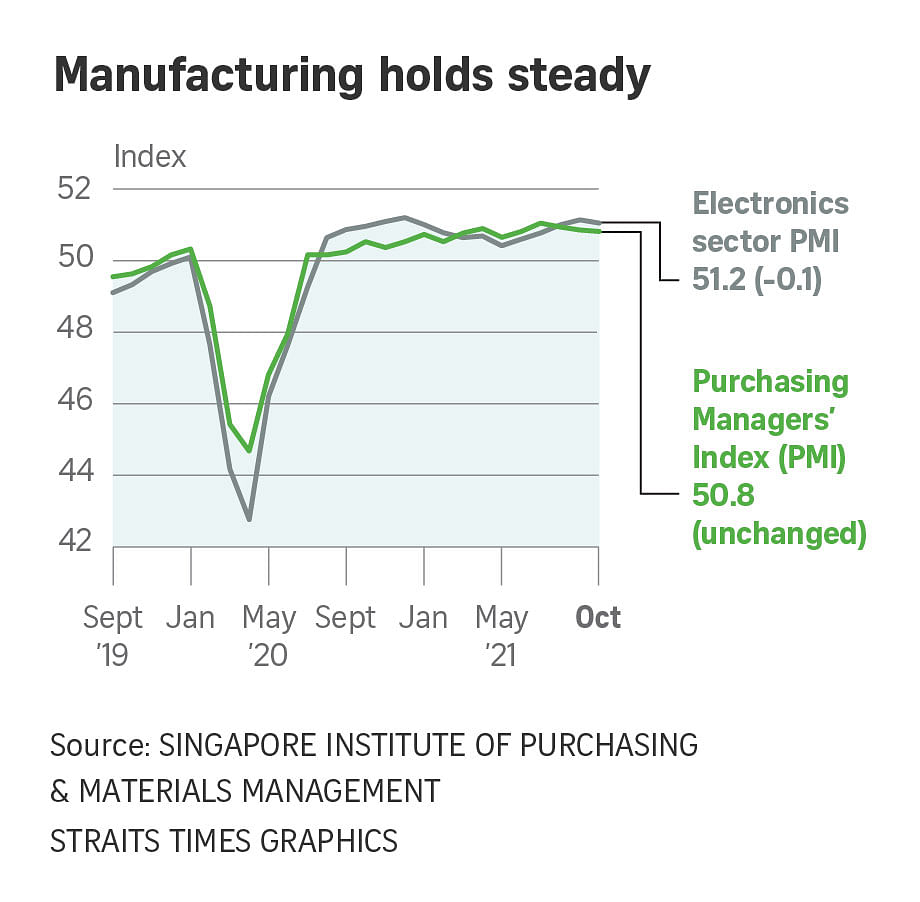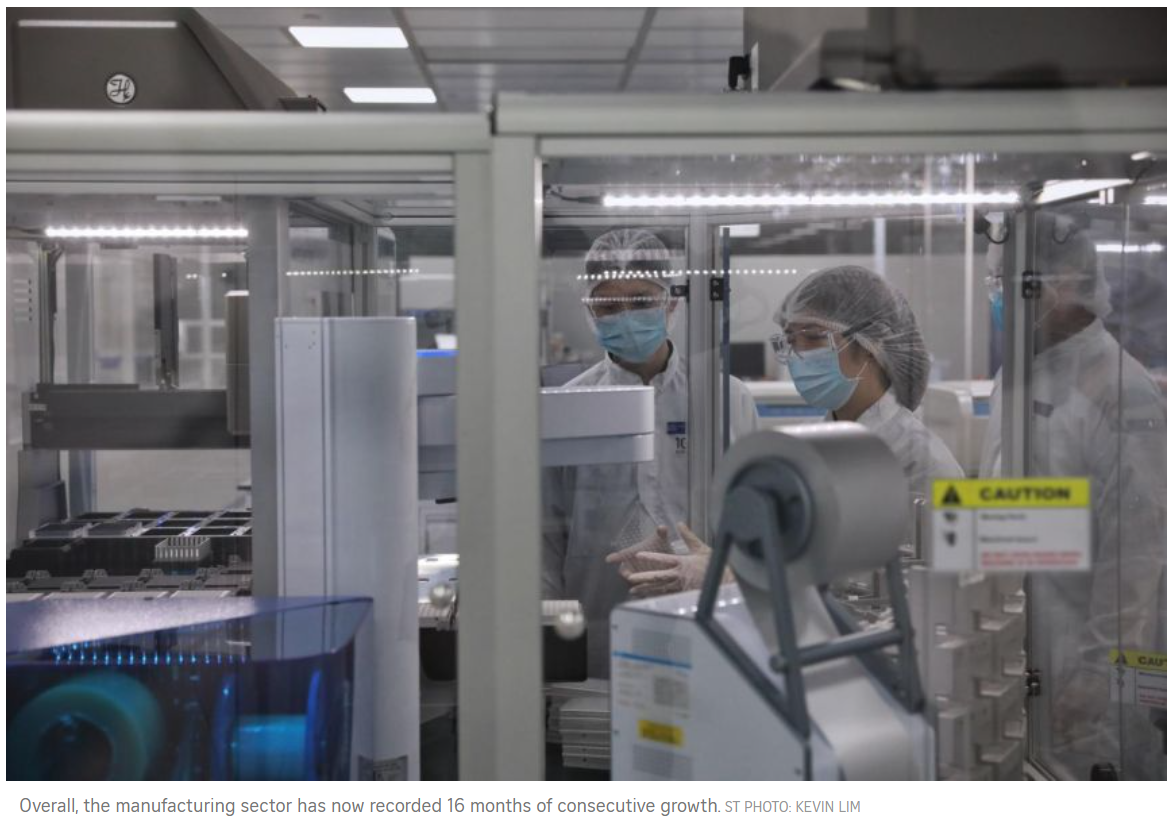Singapore: Manufacturing sector continues to expand, though cost pressures intensify for firms
SINGAPORE – The manufacturing sector has continued to expand even though cost pressures are intensifying for local companies, in particular, those in the electronics sector.
Overall, the manufacturing sector has now recorded 16 months of consecutive growth, according to data from the Singapore Institute of Purchasing and Materials Management (SIPMM) that was released on Tuesday (Nov 2).
The October reading of the Singapore Purchasing Managers’ Index (PMI) remained unchanged from the previous month at 50.8.
PMI readings above 50 points indicate an expansion, while those below 50 represent a contraction.
The latest reading was attributed to slower growth rates in the key indexes of new orders, new exports and factory output, whereas the indexes of inventory, employment and supplier deliveries rose at a faster pace, the institute said.
The indexes of both finished goods and input prices recorded a faster expansion, with the input prices index posting 15 months of continuous growth.
However, the indexes of imports and order backlog registered slower expansion rates.
OCBC Bank’s chief economist Selena Ling noted that input prices for the overall manufacturing sector, as well as for the electronics sector, are now at multi-year highs.
“Whether the input price increase arises from higher shipping costs and/or supply chain disruptions which have contributed to component shortages, it would still pressure profit margins if not passed on to consumers eventually,” she said.
Ms Sophia Poh, SIPMM’s vice-president for industry engagement and development, said the continued expansion of the manufacturing sector is heartening.
“Cost pressures are mounting on local manufacturers, in particular, the electronics sector. But these appear to be absorbed by increased demand for the year-end festive seasons,” she added.
Anecdotal evidence suggests that such cost pressures on electronics manufacturers can be linked to the rising input prices of electronics materials and components, said Ms Poh.
The shortages of semiconductor chips have also disrupted electronics supply chains.
Moreover, these cost pressures are aggravated by higher oil and gas prices, which inevitably pushed up freight and delivery charges, Ms Poh noted.
The PMI for the electronics sector in October saw a decrease of 0.1 point from the previous month to record a marginal slower rate of expansion at 51.1.
This is the 15th month of growth for the electronics sector.
SIPMM attributed the latest reading for the sector to slower expansion rates in the key indexes of new orders, new exports and factory output.
However, the indexes of inventory, employment and supplier deliveries rose at a faster rate, said the institute.
The indexes of finished goods, input prices and order backlog expanded at a faster pace, whereas the imports index rose at a slower rate.
The order backlog has now recorded 16 months of continuous expansion.
The manufacturing sector accounts for about 21 per cent of Singapore’s gross domestic product, according to a Straits Times report earlier this year.

Source: https://www.straitstimes.com/business/economy/manufacturing-sector-continues-to-expand-though-cost-pressures-intensify-for-firms


 English
English




